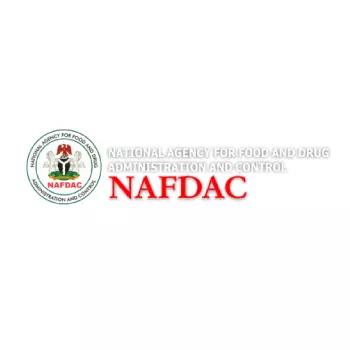NAFDAC’s Decisive Action in Kano: Combating the Menace of Expired and Unregistered Products
In a recent enforcement drive, the National Agency for Food and Drug Administration and Control (NAFDAC) successfully confiscated goods worth around ₦350 million during a targeted raid in Kano State. This operation was part of an intensified effort to tackle the widespread circulation of expired and unregistered products that pose serious health risks to consumers. By taking this firm stance, NAFDAC reaffirms its dedication to protecting public health and enforcing stringent food and drug safety standards across Nigeria.
The Kano Raid: A Critical Step Toward Consumer Protection
The recent crackdown in Kano uncovered a substantial quantity of expired and unregistered commodities valued at ₦350 million, revealing persistent challenges within local markets where unsafe products continue to circulate unchecked. This intervention is pivotal not only for removing hazardous items from shelves but also for sending a strong message about regulatory vigilance.
This operation carries several important implications:
- Enhancing Consumer Education: Raising awareness among Nigerians about the dangers linked with consuming expired or unauthorized goods.
- Tightening Regulatory Controls: Urging policymakers to implement more rigorous monitoring systems aimed at preventing similar infractions in the future.
- Mitigating Health Hazards: Reducing potential outbreaks or illnesses caused by contaminated or substandard products entering the supply chain.
The success of this raid highlights NAFDAC’s essential role as Nigeria’s frontline defender against counterfeiters and unscrupulous traders. It also fosters stronger collaboration between regulatory bodies, law enforcement agencies, and consumer advocacy groups—an alliance crucial for sustaining market integrity amid ongoing threats.
Tackling Root Causes: Comprehensive Strategies to Halt Illicit Product Distribution
The prevalence of expired and unregistered goods stems from complex factors requiring coordinated responses. To effectively address these issues, regulatory authorities must deepen partnerships with local governments, community influencers, and industry players while launching extensive public education campaigns focused on product safety awareness.
A multi-pronged approach includes:
- Enforcing Harsher Penalties: Instituting stricter fines or legal consequences designed to deter offenders involved in illegal trade activities (similar crackdowns abroad demonstrate effectiveness).
- Retailer Training Programs: Offering workshops on inventory management best practices that help prevent stock expiration issues at points-of-sale.
- Crowdsourced Reporting Mechanisms: Encouraging consumers to report suspicious vendors through accessible hotlines or mobile apps enhances community policing efforts against counterfeit distribution networks.
An integrated framework involving all stakeholders can foster accountability throughout supply chains. For instance, certification schemes verifying supplier legitimacy could become standard practice while data-sharing platforms enable real-time tracking of product movement patterns—helping identify hotspots prone to illicit sales quickly. The table below summarizes key participants along with their responsibilities within this ecosystem:
| Stakeholder | Main Responsibility |
|---|---|
| NAFDAC | Main regulator overseeing compliance enforcement & inspections |
| Sellers/Retailers | Diligent stock control & adherence to safety protocols |
| Civic Leaders & NGOs | Energizing educational outreach & community mobilization |
| Nigerian Consumers | Diligent reporting via whistleblowing channels |
Evolving Regulatory Frameworks: Recommendations for Stronger Oversight Across Nigeria’s Markets
The Kano seizure underscores an urgent need for bolstered governance structures capable of curbing illegal imports as well as domestic circulation of subpar products. Strengthening institutional capacity remains paramount if Nigeria is to safeguard its citizens effectively against health hazards posed by counterfeit consumables.
A set of actionable recommendations includes:
- Bolstering Enforcement Resources:
Allocating increased funding towards equipping agencies like NAFDAC with advanced tools—such as portable scanners—and expanding personnel trained specifically in detecting fraudulent items during routine market inspections. - Cohesive Interagency Collaboration:
Fostering partnerships between customs officials, police forces, port authorities—and even international counterparts—to intercept contraband before it reaches Nigerian consumers.- User-Centric Awareness Drives:
Launching nationwide campaigns leveraging social media platforms alongside traditional media outlets aimed at educating buyers on identifying registered versus fake products empowers informed purchasing decisions.Digi-Tech Integration:
Utilizing blockchain technology or QR code verification systems enables transparent tracking throughout supply chains—from manufacturer certification through retail sale—minimizing opportunities for infiltration by illicit goods.To Conclude
The recent seizure carried out by NAFDAC in Kano vividly illustrates the agency’s relentless pursuit toward ensuring that only safe foodstuffs and pharmaceuticals reach Nigerian consumers’ hands. Removing ₦350 million worth of dangerous expired/unregistered merchandise marks another milestone within ongoing efforts combating illicit trade networks undermining national health security.
Authorities continue urging citizens remain alert; promptly report suspicious transactions so collective vigilance can stem harmful product circulation.
As technological advancements merge with strengthened policies under vigilant oversight regimes moving forward – Nigerians stand better positioned than ever before safeguarding their wellbeing amidst evolving marketplace challenges.
Stay informed; prioritize your safety always.
- User-Centric Awareness Drives:















